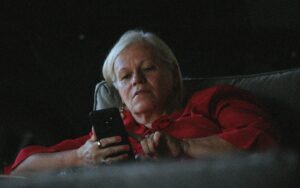Sky Ute Casino Resort in Colorado is one of the first tribes to offer a mobile app for sports-betting that could face legal challenges.
By Tony Batt
GamblingCompliance (June 15th, 2020) — Although it remains to be seen if the first Native American casino sports-betting app will face legal challenges, the launching of the app by the Sky Ute Casino Resort in Colorado shows that the Indian gaming industry is gravitating toward the mobile sports wagering market.
“The tribes are very rapidly moving ahead with the implementation of technology not just out of necessity because of the coronavirus but also the fact that all of gaming — commercial gaming along with tribal gaming — has to utilize all available technology to thrive in the future,” said Joe Valandra, a former chief of staff at the National Indian Gaming Commission.
The Sky Ute Casino Resort is located in the southwestern Colorado town of Ignacio, which has a population of just 697.
Customers from across Colorado became able to place bets on the Sky Ute Sportsbook app on June 9.
The launch came seven months after Colorado voters narrowly approved a referendum in November to allow sports betting and effectuate a law passed by the state legislature that allows commercial casinos to offer wagers in their venues and through online platforms.
Since May 1, six online sportsbooks, including FanDuel and DraftKings, have been licensed by the Colorado Limited Gaming Control Commission and launched mobile sports wagering.
Although it has not been licensed by state regulators, the compact of the Southern Ute Tribe, which owns the Sky Ute Casino Resort, expressly allows the tribe to offer any form of gaming that is “expressly authorized” in Colorado.
Still, David Klein, managing partner of New York City law firm of Klein Moynihan Turco, said the Southern Utes would be better served by obtaining a sports-betting license.
“If you’re making these wagers while you’re on the tribe’s reservation, that would be OK,” Klein said. “But bets in other parts of Colorado would be considered wagers placed with an unlicensed operator.”
Vic Salerno, president of USBookmaking, the Nevada-based company managing the sports-betting app for the Sky Ute Casino Resort, referred questions to the tribe’s gaming commission.
The commission did not immediately respond to an email from VIXIO GamblingCompliance.
Klein cited a 2018 decision by the 9th U.S. Circuit Court of Appeals in California that blocked a tribe from using servers on their reservation to offer online bingo games to customers all over the state.
Valandra, who is now executive director of the Native American Contractors Association, led efforts by the Ipsay Nation of Santa Ysabel Tribe to launch the Desert Rose online bingo games in California.
“There are technology parallels between Desert Rose and the sports-betting app in Colorado, but the legal parallels are not exactly the same,” Valandra said.
For example, the California courts cited the Unlawful Internet Gambling Enforcement Act (UIGEA) of 2006 in striking down the Desert Rose online bingo games that were considered a form of Class II gaming.
The sports betting offered by the Sky Ute Casino Resort is considered Class III gaming, which can only be offered subject to state approval via a compact.
Kevin Quigley, one of the attorneys who represented the tribe operating the Desert Rose bingo games, said questions remain about how the Indian Gaming Regulatory Act of 1988 (IGRA), UIGEA and the Wire Act of 19611
questions remain about how the Indian Gaming Regulatory Act of 1988 (IGRA), UIGEA and the Wire Act of 1961 apply to tribal gaming.
“Whether a patron can legally access Indian gaming operations from outside the reservation is still to be determined,” Quigley said.
Tom Foley, a tribal gaming attorney and a former vice chairman of the National Indian Gaming Commission (NIGC), said the federal agency may have to decide if the tribal sports-betting app in Colorado complies with federal law.
In a March 2001 guidance letter, the NIGC advised that “the use of the internet even though the computer server may be located on Indian lands would constitute off-reservation gaming to the extent any of the players were located off of Indian lands.”
Since then, UIGEA has been passed by Congress recognizing the authority of states to regulate online gambling within their own borders and excluding any activities otherwise permitted under IGRA from the definition of unlawful internet gambling.
That was more than a decade before the U.S. Supreme Court ruled in May 2018 that all states can legalize and regulate sports betting.
“That [NIGC] opinion was guided by the policy of the U.S. Department of Justice which back then considered internet gambling and sports betting to be illegal,” said Penny Coleman, a former general counsel of the NIGC.
Coleman said she does not expect the NIGC to revise the opinion.
PHOTO BY: https://www.bestonlinecasino.bet/grand-mondial-casino




